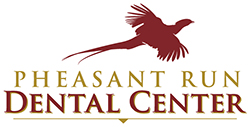Tooth Extraction
Why Extract a Tooth?
A tooth extraction is a form of oral surgery, and is considered an invasive process. Tooth extractions are performed when your teeth are compromised by gum disease or other damage (infection, abscess, etc). By removing the tooth, infection is prevented from spreading to other areas of your mouth. Crowded mouth may be a reason for pulling teeth. This will prepare the mouth for possible orthodontic work.
Tooth Extraction Process
Your dentist will administer local anesthesia to numb the tooth and surrounding area. Some extractions are routine, but most have to be taken out surgically. Bone removal and sutures are sometimes necessary. Depending on the difficulty, a referral to an oral surgeon may be necessary.
After the tooth has been removed, there are a number of options to fill the gap. Your dentist may recommend dental implants, a dental bridge, or dentures after the healing process is complete.
After-Surgery Care
After your tooth has been extracted, a blood clot will form in the socket. This blood clot is a crucial step to the healing process. Dry socket occurs when the blood clot is loosened or dislodged. This is could be a very painful experience, as it exposes your bone.
If you are a smoker, you will be advised not to smoke for a few days after tooth extraction surgery. The sucking motion of smoking may contribute to loosening your blood clot. Aside from the technical aspect, smoking also delays your healing process and the ability of your gums to fight infection. Avoid smoking in the days before and after your tooth extraction surgery. Avoid using straws for the same reason.
Recovery from tooth extraction may take a few days. Pain medication is recommended for irritation and pain. To help with swelling, apply an ice pack for 10 minutes at a time. Try to rest and avoid heavy activity for about 24 hours. When lying down, prop up your head to help stop the bleeding. Remember – tooth extraction is considered surgery!
Your dentist will recommend that you avoid rinsing or spitting, to ensure that the blood clot forms properly in the socket. Eat soft, easy to swallow foods that require less chewing. Be gentle with your entire mouth, even the areas that have not undergone surgery. The whole mouth works together, and you will want to give yourself as much time to rest as possible.
Risks with Tooth Extraction
It is important to provide your dentist with a clear picture of your physical health. If your immune system is not very strong, a course of antibiotics may be prescribed prior to the tooth extraction. This is a preventive measure that keeps bacterial infection from spreading to your bloodstream during the tooth extraction process. Some conditions that may encourage a course of antibiotics include heart problems, an impaired immune system, or major recent surgeries.
Schedule an appointment
If you would like to schedule an appointment or learn more about our practice and/or services, please call (701) 577-3333 or click below.
